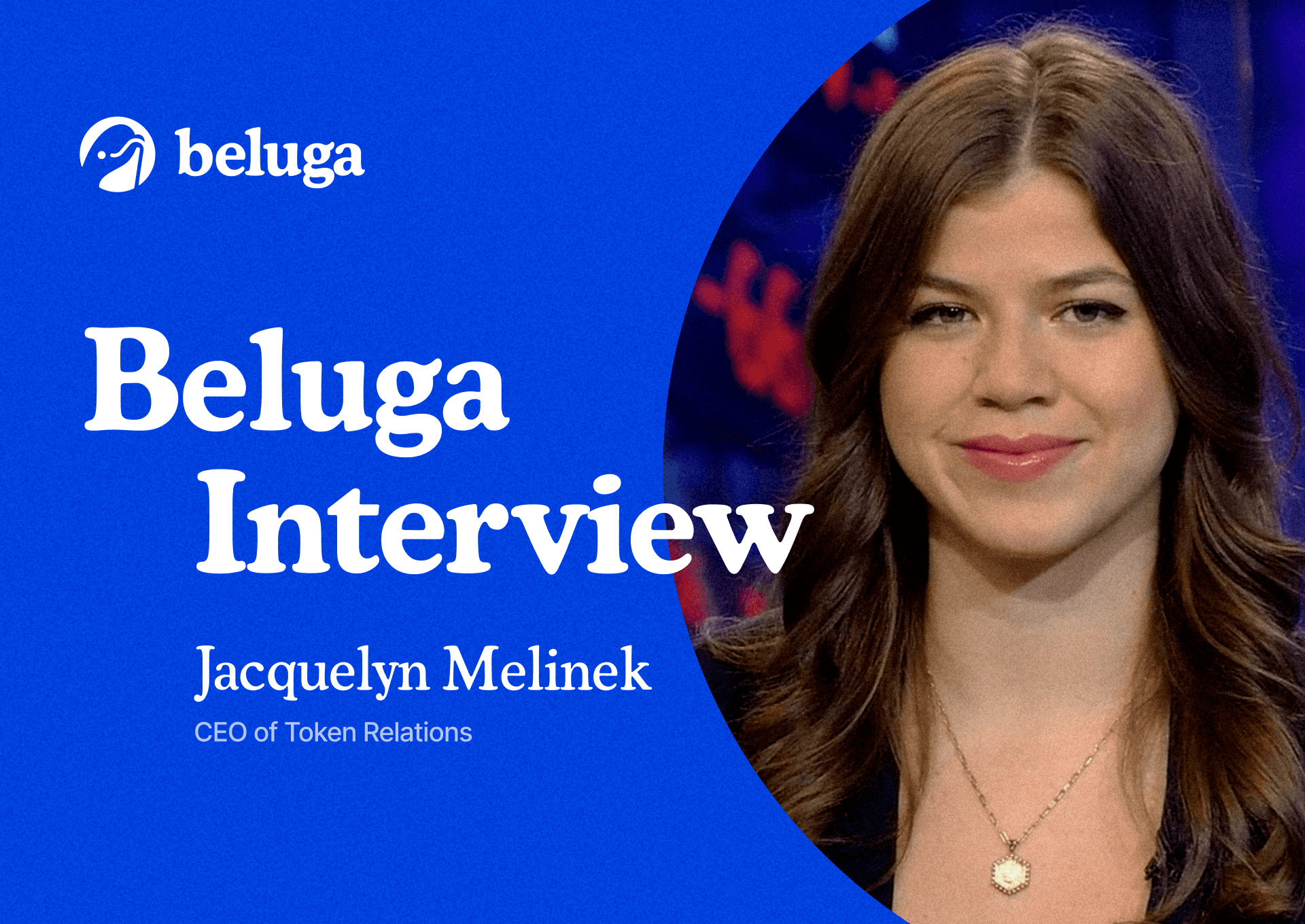Beluga Spotlight - Trevor Koverko, Co-Founder of Sapien.io
By Will McKinnon Updated June 17, 2025

Summary
- Trevor has worn many hats over the years, from playing professional hockey in the NHL to founding a number of successful startups.
- After discovering crypto in 2012, he became hooked by the possibilities of decentralized blockchain networks.
About Trevor
Trevor is a repeat entrepreneur with experience co-founding, scaling and exiting several startups. His past companies include Polymath, Polymesh, Tokens.com (TSXV: XBOT), Matador and now Sapien.
Questions:
Let’s talk about growing up in Canada and playing hockey. You didn't have the normal tech founder background. Did you have passion for computers and tech or was hockey your main focus?
Growing up in Canada, hockey was everything, it wasn’t just a sport, it was a full identity. I was drafted by the OHL at 15, and then the NHL at 18 to the New York Rangers, and that path consumed most of my life. That said, I always had a quiet curiosity about emerging tech. I was obsessed with systems, whether that was the system of dissecting a hockey offense or the early mechanics of blockchain. Tech became my next arena after sports.
What did it feel like to be drafted by the NY Rangers and reach your childhood goal?
It was surreal. Every kid in Canada dreams of that moment, and to actually hear your name called by an Original Six team like the Rangers was something I’ll never forget. It validated all the years of sacrifice, early mornings, injuries, all of it.
How was your hockey career and tell me about the accident?
After getting drafted into the NHL, I was on track. But like a lot of athletes, I hit an unexpected wall. I was in a serious car accident and diagnosed with a catastrophic brain injury that changed everything. That moment was painful, but also freeing. It gave me space to figure out who I was beyond hockey.
How did you get into crypto?
It started in 2012. I was living in Silicon Valley post-hockey and got pulled into some wild Reddit threads about blockchain. It reminded me of the early internet, chaotic, full of visionaries and weirdos. Once I understood the mechanics behind decentralized consensus, I was hooked. It became less about money and more about rethinking how systems, financial, social, political, could work.
Polymath was one of the biggest ICO’s in 2017, how did you come up with the idea for it?
At the time, everyone was focused on utility tokens. But I saw a massive blind spot: securities. There was no infrastructure for real-world assets, stocks, bonds, real estate, to be tokenized in a compliant way. Polymath was built to solve that. We took a regulated-first approach before it was trendy.
Why did you leave Polymath?
Polymath had grown into a regulated institution on the way to going public, and it needed a different kind of leader. I’ve always thrived in zero to one, not one to ten. Once the foundations were in place, I hired a CEO and let the team scale it. That’s when I started thinking about what the next intersection of crypto and AI could look like, which eventually became Sapien.
What made you want to start Sapien.io and how did you team up with Rowan Stone from Base?
Sapien came from a very simple insight: AI is only as smart as the data it learns from. But the production of structured data is a broken, expensive process. We realized a distributed network of aligned humans could fix that, using token incentives to gamify and scale human feedback for AI. I met Rowan through mutual Web3 circles, he had just founded Base at Coinbase. We instantly clicked. He had the credibility, and we shared the same vision, building an open protocol for training data.
Sapien is one of the few companies in crypto that actually has real customers like Toyota, Lenovo, Amazon, Baidu, etc. How did you sign them up?
We didn’t lead with “crypto.” We led with outcomes, higher-quality data, faster annotation, and better human feedback loops. Once we showed that Sapien could outperform traditional vendors, the crypto piece became a bonus, not a blocker. We also had relationships from our early days in AI and ML. That helped open doors, but results are what kept them open.
Do you think AI is going to be crypto’s best use case?
Yes, especially when it comes to human alignment. Crypto creates new incentive structures that AI desperately needs. Whether it’s paying labelers, decentralizing model governance, or verifying model outputs, crypto gives AI the economic layer it’s missing. We’re still early, but it’s the most promising overlap I’ve seen since entering blockchain in 2012.
You’ve been in crypto since 2012, what are some of your favorite tokens you own?
I’m long-term biased toward infrastructure plays. Ethereum, obviously. I also love Bitcoin for its purity. I’m also bullish on AI-adjacent protocols that actually solve real-world problems, like data marketplaces or decentralized compute. But I don’t chase memes. I try to own what I’d want to build on.
With AI evolving so fast, what future do you think we are headed towards? Should we be prepping for Jetsons or Terminator?
It’s a race between wisdom and capability. If we align AI with human values, with real human feedback, we get the Jetsons. If we optimize for speed and profit without alignment, we risk the Terminator. That’s why what we’re doing with Sapien matters. The future isn’t written yet, but we have a chance to shape it.
If you liked this article, follow Sapien.io and Trevor on X to make sure you don't miss an update!
Join the Beluga Brief
Dive deep into weekly insights, analysis, and strategies tailored to you, empowering you to navigate the volatile crypto markets with confidence.
Never be the last to know
and follow us on X








